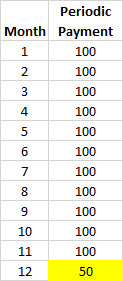
There is both prior court authority and statutory authority in S 64 WESA that allows the court to exercise its discretion to release a part of the testator’s estate either as a lump sum or periodic payments for a spouse or children in a wills variation action.
The court also has jurisdiction to create a trust in favor of the will maker’s spouse or children and the authority to order a transfer of property into the trust.
Prior to WESA , in Hecht v Hecht (1990) 39 ETR 165 BCSC the court held that a legacy under a will can be paid notwithstanding a pending claim for variation when the risk of the variation order will encroach upon the funds needed to satisfy the legacy is remote.
Paragraph 42 of Hecht states the factors to be considered by the court when deciding whether to exercise its discretion to release part of an estate from the effect of a variation order include:
A. The amount of the benefits sought to be distributed as compared to the value of the estate
B. the claimant the beneficiaries on the testator
C. the need of the beneficiaries for money;
D. the consent of the residuary beneficiary to the proposed distribution
Davis v. Burns 2016 BCSC 1982, also allowed an interim distribution to a beneficiary under a wills variation action, where the court specifically exercised its inherent jurisdiction to do so.
The court ordered that more than 50% of his potential residual share, despite the objection of another residuary beneficiary, citing lack of prejudice, since the distribution only amounted to 10% of the total value of $2,500,000.
The court followed the criteria previously set out in Hecht.
In Davis, the court held that, having regard to the plaintiff’s financial need in the amount of the benefits to be distributed from the estate, the distribution to the plaintiff would not prejudice the estate or the executor’s duties.




